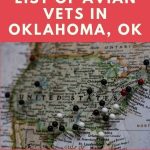Looking for exotic or avian vets in Indianapolis, IN? If you’re raising backyard chickens or keeping birds of any kind, it’s important to know if you have an avian specialist in your area.
Avian vets specialize in the care of birds. A lot of vets will treat a bird, but it’s certainly better if you can find a specialist.
Below is a list of animal hospitals and veterinary practices I was able to verify offered avian care at the time of publishing:
Table of Contents
List of Avian Vets in Indianapolis, IN
| Name | Location | Phone | Website |
|---|---|---|---|
| Avian & Exotic Animal Clinic of Indianapolis | 9330 Waldemar Road Indianapolis IN, 46268 | 317-879-8633 | exoticvetclinic.com |
| All Wild Things Exotic Animal Hospital | 6058 N. Keystone Avenue, Indianapolis, IN 46220 | 317-255-9453 | allwildthings.net |
| Crestview Animal Hospital | 9525 E Washington St. Indianapolis, IN 46229 | 317-898-5893 | crestviewanimalhospital.vet |
Avian & Exotic Animal Clinic of Indianapolis
Address - 9330 Waldemar Road Indianapolis IN, 46268
Phone - 317-879-8633
Contact - Contact page
Website - exoticvetclinic.com
All Wild Things Exotic Animal Hospital
Address - 6058 N. Keystone Avenue, Indianapolis, IN 46220
Phone - 317-255-9453
Contact - Contact page
Website - allwildthings.net
Crestview Animal Hospital
Address - 9525 E Washington St. Indianapolis, IN 46229
Phone - 317-898-5893
Contact - Contact page
Website - crestviewanimalhospital.vet
What Do Avian Vets Do?
Avian vets provide all the same services as regular vets. The only difference is that they specialize in treating birds.
It’s interesting because birds are very different physiologically from the most common household pets, cats and dogs. This is why some vets do not see birds, and likewise some avian vets will not treat cats and dogs.
It’s always worth asking a vet if they treat birds because you never know. But it’s always better if you can find an avian vet (hopefully from the list above) as you know it’s their area of specialty.
From a qualification standpoint, avian vets graduate with the same Doctor of Veterinary Medicine (DVM) as other vets.
If you see “AAV” or “ABVP” next to their name, this shows they are members of the Association of Avian Veterinarians and/or the American Board of Veterinary Practitioners.
Signs a Chicken Is Sick
Like most animals, chickens are good at hiding when they’re sick or injured. It’s up to us as owners to spot the signs that something may be up.
To help you out, the most common symptoms and signs that a chicken is sick include:
Lethargic behavior - If you notice one or more of your flock are acting lethargic, not as active as normal, or just aren’t acting right for any reason, it’s a sign that you need to check they’re in good health.
Pale comb/wattle - A chicken’s comb and wattle is a good indication of their general health. If their comb and/or wattle is more pale than normal or showing signs of damage, they might be dealing with some health issues.
Diarrhea or vomiting - Diarrhea and vomiting is always a sign that something is up. More often than not, it’s nothing serious. But if it doesn’t pass, it may mean there is a more serious underlying problem.
Not eating or drinking - When a chicken isn’t gobbling up their food, especially treats, you know something is wrong! On a serious note, it’s important they are drinking and eating enough, otherwise, their condition will worsen.
Not laying eggs - Not laying eggs is not always a sign that a chicken is sick. It might simply come down to the number of hours of daylight, their breed, or some other things. It’s worth investigating, however, as it may be an indication that they’re sick.
What To Do if You Have a Sick Chicken
Chickens are pretty hardy and robust birds in my experience, but obviously, they can get sick or injured.
If you have a chicken showing any of the above symptoms, or if you can see they are obviously injured or unwell, the first thing you should do is separate them from the rest of the flock.
Sick chickens are targets to be picked on. Plus, if they have anything contagious, you don’t want it spreading through the rest of your flock.
So, it’s better you isolate them in their own living space until you figure out what’s wrong with them and what course of action is needed to get them back to 100%.
This is when you should at least make contact with an avian vet if you have one near enough that you would visit them.
See what advice they can give you based on your bird’s situation. No one ever wants the time and expense of making a trip to the vet, but sometimes it’s necessary.
Related articles; check out avian vets in Seattle, WA, and San Francisco, CA.
Disclaimer -These were veterinary practices offering avian services at the time of publishing. I cannot be held responsible for any changes in services, personnel, or otherwise in the meantime. If you spot any inaccurate information, please contact me and I will verify and change it. Many thanks.
Image credits – Photo by Joey Csunyo on Unsplash




